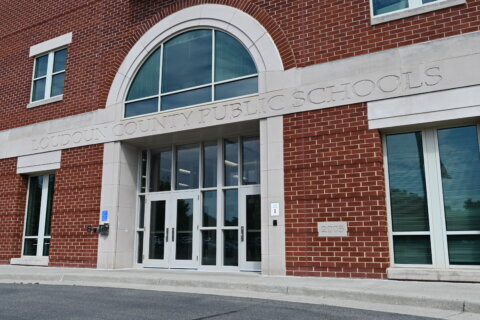WASHINGTON — A Georgetown University pediatrician says he has “a lot concern” about how emissions from the Rockwool insulation factory being built in Jefferson County, West Virginia, will affect the health of children and adults living nearby.
Dr. Jerome Paulson, pediatric consultant to the Mid-Atlantic Center for Children’s Health and the Environment told WTOP he believes hundreds of tons of carbon dioxide, nitrogen dioxide, sulfur dioxide, and formaldehyde per year, as well as tons of volatile organic compounds will pose a risk.
“Many of those chemicals have toxic properties that would negatively impact the health of children living nearby,” Paulson said.
“The existence of a toxic chemical, in close proximity to an individual, is not, in and of itself, dangerous, if there’s no way for those chemicals to get into your body, to harm you,” Paulson said. “With these chemicals in the air, the pathway to exposure would be inhalation.”
Paulson said some of the local impact will be decreased by tall stacks that will disperse some of the emissions downwind.
Opponents to the factory have expressed concern that four schools are located near the factory, including one — North Jefferson Elementary School — which is right across Route 9 from the $150 million plant.
Rockwool intends to begin air monitoring at the school and other locations in the coming months, to ensure air quality is within acceptable limits.
“Certainly for that school that’s across the street, it probably doesn’t matter which way the winds generally blow, that school is going to be impacted,” Paulson said.
In August, the Jefferson County Board of Education asked Rockwool to conduct a human health risk assessment. However, the company selected to do the in-depth test recently withdrew from the test, and the company has said it will choose another consultant to perform the assessment.
Michael Zarin, Rockwool’s vice president of group communications for the Denmark-based company, told WTOP, “We have committed to conducting a scientifically rigorous, highly professional human health risk assessment with a special focus on school-age kids, and that’s exactly what we’re going to do.”
Zarin has said the factory’s emissions will have no negative effects on anyone, citing the Rockwool factory in Byhalia, Mississippi, and 45 other plants around the world.
“Unless otherwise demonstrated, we stand by the robust body of science that underpins the current regulations and the reality that our emissions will be well under the limits considered safe for sensitive populations, including children, the elderly, and asthmatics,” Zarin said.








